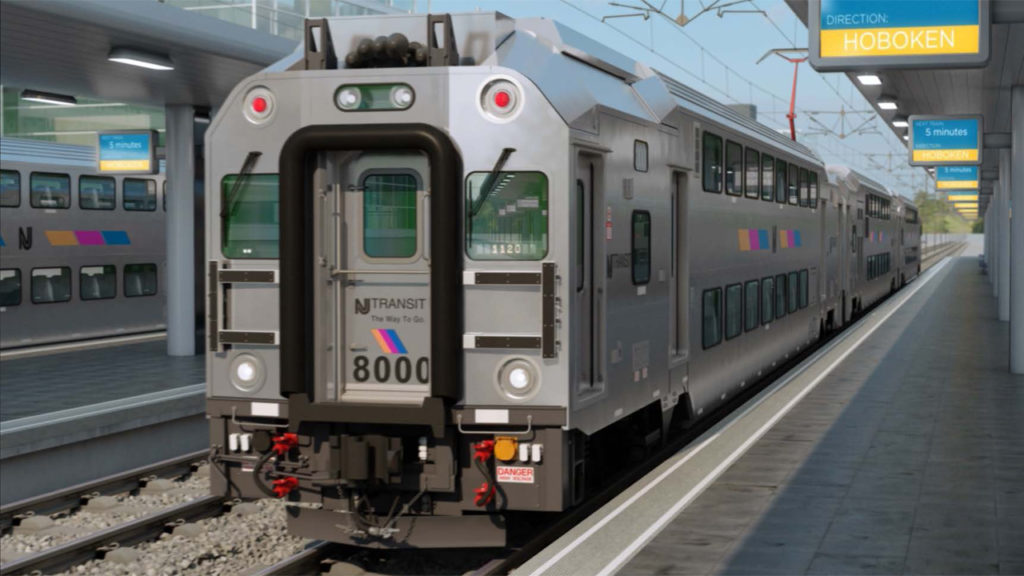
TriMet, NJT: Protecting Employees, Improving Rider Experience
Written by Marybeth Luczak, Executive Editor
TriMet’s Board of Directors on Dec. 14 approved Ordinance 369 to amend the rules for operating and riding TriMet MAX light rail, WES commuter rail, Portland Streetcar, and bus and paratransit services.
Tri-County Metropolitan Transportation District of Oregon (TriMet) and New Jersey Transit (NJT) are working to strengthen protections for transit workers and to improve the rider experience through new regulations.
TriMet’s Board of Directors on Dec. 14 approved Ordinance 369 to amend the rules for operating and riding TriMet MAX light rail, WES commuter rail, Portland Streetcar, and bus and paratransit services. The aim: to “strengthen TriMet’s ability to help keep riders and employees safe.”
The changes, effective Jan. 13, 2023, authorize the General Manager to impose “stiffer penalties for prohibited [behavior-based] conduct on the transit system,” according the TriMet. They expand the types of offenses that can result in long-term exclusions, which are defined as “those that stretch from six months to a lifetime ban,” the transit agency said. “While felonies already fall under the scope of our current long-term exclusion policy, attempted felonies and Class A misdemeanors—the most serious category, which includes fourth-degree assault and some bias crimes—will also be eligible for longer exclusions.”
Ordinance 369 makes three main changes that focus on “individuals who commit serious physical offenses and repeatedly violate TriMet’s Code relating to conduct.” The changes are:
- “The most serious misdemeanors will be covered under TriMet’s definition of ‘serious physical offense.’ People committing Class A misdemeanors against others, along with attempted felonies, will be eligible for long-term exclusions. In addition to assault and bias crimes in the second degree, Class A misdemeanors include public indecency, possession of a hoax destructive device and harassment that includes offensive sexual contact.
- “Remove distinctions between first and second offenses. Because most, if not all, the actions that trigger a long-term exclusion are physical and serious, the approved changes simplify the Code by removing the distinction between first and second offenses. The General Manager has discretion on whether a year-long exclusion, or even a permanent ban, is warranted after the first offense, depending on the severity of the crime. Since TriMet instituted long-term exclusions more than five years ago, only one person has ever been permanently excluded. Anyone who receives a long-term exclusion does have the right to appeal it annually.
- “Further address chronic offenders. Chronic offenders who have repeatedly commit Code violations for behavior, whether they were Class A misdemeanors or not, and have not changed their behavior despite multiple attempts by TriMet to dissuade such conduct, will also be eligible for long-term exclusions of up to two years. Chronic offender is defined as a person with three or more violations for conduct within a 90-day period. Making chronic offenders eligible for long-term exclusions is specific to behavior and not simple fare evasion. Rather, this addresses behavior that disrupts the safety and order of the transit system.”
Approval of these changes comes eight months after the TriMet Board signed off on a change that increased penalties for spitting on operators.

Also on Dec. 14, NJT reported beginning a rulemaking process to strengthen protections for commuter rail, light rail, bus and paratransit workers. It will enact new regulations that “establish a procedure by which NJT would be able to administratively suspend ridership privileges for individuals who assault transit employees while also creating due process for offenders to appeal proposed suspensions.”
New Jersey Gov. Phil Murphy in January 2022 signed the Motorbus and Passenger Rail Service Employee Violence Protection Act (VPA), which NJT said enables it to “administratively suspend ridership privileges for up to one calendar year for any individual who assaults an operational employee. If the individual uses a deadly weapon during the commission of an assault, that person may be suspended from the transit system for life.”
According to NJT, its proposed regulations would create progressive sanctions (where the length of the suspension would increase with each ensuing offense) and provide due process to individuals facing a suspension. The proposed rules would also set procedures for the creation of a Ridership Appeal Board, when necessary, to review initial determinations made by NJT.
The transit agency said it will publish the proposed regulations in the NJ Register for a public comment period of 60 days, after which, NJT will incorporate public feedback before presenting final regulations to the NJT Board for adoption.
“There is nothing more important than ensuring our employees are safe and protected while carrying out their duties in service to the riding public,” NJT President and CEO Kevin S. Corbett said. “These new proposed regulations should serve as powerful deterrents against an assault on our valued employees, particularly after the dedication and commitment they all demonstrated through the pandemic for all those who depend on public transit.”
“We will ensure any acts of violence committed against our employees or customers are prosecuted to the fullest extent of the law,” NJT Police Chief Christopher Trucillo said.
In related developments, the Federal Transit Administration is seeking applicants for a research project to help transit agencies address operator and rider assaults.



